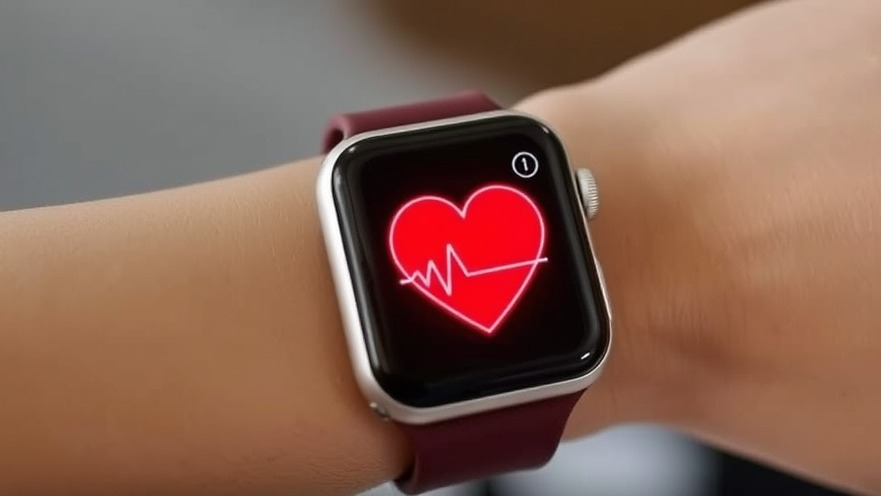
Revolutionizing Heart Health Monitoring with Technology
The American College of Cardiology (ACC) has taken a significant step towards enhancing heart health management by introducing a comprehensive guidance tool for using the Apple Watch in clinical practice. This initiative responds to the growing trend of patients embracing wearable technology, which empowers them to monitor their cardiovascular health actively. As stated by Dr. Ami Bhatt, the ACC's Chief Innovation Officer, having structured guidance is crucial for ensuring accurate data collection and effective communication between clinicians and patients.
Understanding Apple Watch Features and Their Impact
The Apple Watch is not just a tech accessory; its FDA-approved features have tangible benefits in managing heart health. Key tools such as the electrocardiogram (ECG) capability and the Irregular Rhythm Notification (IRN) feature provide vital information about heart rhythms, particularly in identifying conditions like atrial fibrillation (AFib). Moreover, its ability to track physical activity, sleep, mindfulness, and cardio fitness (VO2 Max) contributes to a holistic approach to wellness.
Charting a Path: Bridging Technology and Clinical Practice
The ACC’s new guidance tool places a significant emphasis on establishing best practices for incorporating data from the Apple Watch into patients' care plans. It outlines a strategic framework for clinicians to not only collect and analyze data but also to engage patients in using the watch effectively as part of their ongoing heart health management. Additionally, it flags situations where Apple Watch should not be used, reinforcing the importance of professional oversight in monitoring arrhythmias.
Preventing Heart Disease: A Collaborative Approach
While heart disease remains a leading cause of mortality globally, utilizing technology like the Apple Watch signs a shift toward preventative care. The ACC advocates for collaboration between clinicians and patients to cultivate a proactive management strategy. By leveraging tools that both parties understand, patients can take ownership of their heart health, while clinicians can provide suited advice and interventions.
Integrating Wearable Technology in Patient Care
The notion of blending technology with traditional care may initially seem daunting, especially for practices that have yet to embrace digital tools. However, it is vital for practitioners to stay abreast of these advancements. The ACC's guidance serves as a roadmap, outlining how clinicians can effectively integrate this technology to enhance patient education, support informed decision-making, and ultimately improve health outcomes.
Preparing for Tomorrow: Future Trends in Tech-Driven Healthcare
The acceleration of digital health technologies like the Apple Watch suggests that the future of patient care will be increasingly data-centric. As wearables become commonplace, a deeper understanding of how to utilize this data to inform treatment will become essential for health professionals. Anticipating this shift will place early adopters in a position to lead in patient care delivery and outcomes.
Core Takeaway: Empowering Patients through Technology
The ACC guidance emphasizes the importance of empowering patients with the right tools and information to manage their health effectively. By utilizing the Apple Watch, patients can gain insights into their cardiovascular health, leading to improved collaboration with their healthcare providers. As a result, this partnership can pave the way for better health management and ultimately contribute to the prevention of heart disease.
Join the Movement: Embrace Digital Health Solutions
Healthcare practitioners are encouraged to integrate the principles outlined in the ACC guidance into their practices. By doing so, they can not only enhance their patient’s understanding of their health but also foster a culture of proactive health management. The future of heart health is here—let’s embrace it together.
 Add Row
Add Row  Add
Add 




Write A Comment